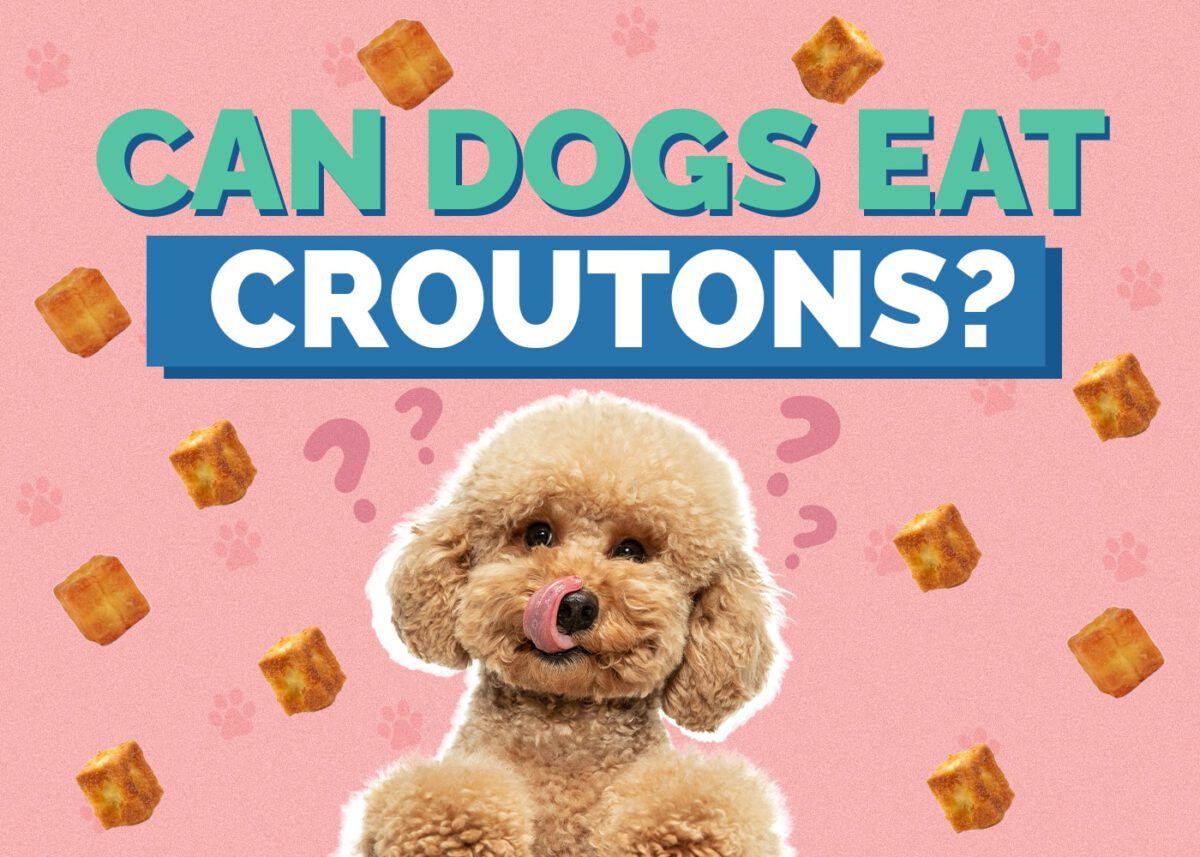Dogs are known for their love of food, and it’s natural for pet owners to want to share their meals with their furry companions. However, when it comes to certain foods, like croutons, it’s important to exercise caution. While croutons may seem harmless, they can actually pose a risk to your dog’s health. In this article, we will explore whether dogs can eat croutons and discuss the potential dangers associated with feeding them to your four-legged friend.
Can Dogs Eat Croutons?
While your dog may be tempted by the crunchy texture of croutons, it’s best to avoid giving them this particular food. Croutons do not provide any nutritional value for dogs, and some store-bought varieties contain ingredients that can be toxic to them. Seasonings like garlic, marjoram, and onion, commonly found in croutons, can cause oxidative stress to a dog’s red blood cells and lead to anemia. Ingesting a few croutons may not cause severe complications, but they can upset your dog’s stomach and make them feel unwell. It is always better to opt for healthier and safer snack options for your pup.
Can Dogs Eat Homemade Croutons?
If you enjoy making your own croutons, you may wonder if it’s safe to share them with your dog. Homemade croutons can be a better option as you have control over the ingredients. By avoiding harmful ingredients like onion and garlic, you can reduce the risk of toxicity. However, it’s important to remember that croutons lack nutritional value and should be given in moderation. While your dog may enjoy the taste and texture of homemade croutons, there are other healthier snack alternatives available.
Are There Health Benefits to Croutons?
Croutons, especially those made from whole-grain bread, may provide some health benefits due to their fiber content, which can help maintain intestinal health. However, most store-bought croutons are made from enriched bread and offer little to no nutritional value for dogs. It’s worth noting that croutons are high in calories and should not replace a balanced diet. If you’re looking for a satisfying and beneficial snack for your dog, it’s best to consider specially formulated dog treats.
What Do I Do If My Dog Ate a Crouton?
If your dog accidentally consumes a crouton or two, there is usually no cause for immediate concern. However, it’s essential to monitor your dog for any signs of gastrointestinal upset. While it takes a significant amount of garlic or onions to cause toxicity in dogs, it’s always better to err on the side of caution. If you notice any unusual symptoms or have concerns about your dog’s health, it’s best to consult your veterinarian.
What’s a Better Snack Option?
When it comes to treating your dog, it’s crucial to choose safe and healthy options. Rather than offering croutons, consider these alternative snack options:
- Fresh fruits like apples, bananas, and watermelon (remove seeds and pits)
- Vegetables such as carrots, green beans, and sweet potatoes (cooked and cut into bite-sized pieces)
- Plain, unsalted peanut butter or yogurt as a special treat (check for any allergies beforehand)
- Commercially available dog treats designed for their nutritional needs and digestive health
Remember to introduce new foods gradually and in moderation to avoid digestive issues.
Frequently Asked Questions
What Are Other Toxic Human Foods?
While it’s important to understand which foods are safe for your dog, it’s equally crucial to be aware of potentially toxic foods. Here are a few common foods that can be harmful to dogs:
- Chocolate
- Grapes and raisins
- Onions and garlic
- Avocado
- Alcohol
- Xylitol (found in sugar-free gum and candy)
If your dog accidentally consumes any of these foods, it’s essential to contact your veterinarian immediately.
Conclusion
Croutons may seem like an innocent snack, but they can be potentially harmful to dogs, especially if they contain ingredients like garlic or onion. It’s always best to avoid feeding your dog croutons altogether and opt for healthier alternatives. If you’re uncertain about what foods are safe for your dog, consult with your veterinarian for guidance. Remember, your dog’s well-being is paramount, and by making informed choices, you can ensure they lead a happy and healthy life.
Featured Image Credit: Jumpstory
